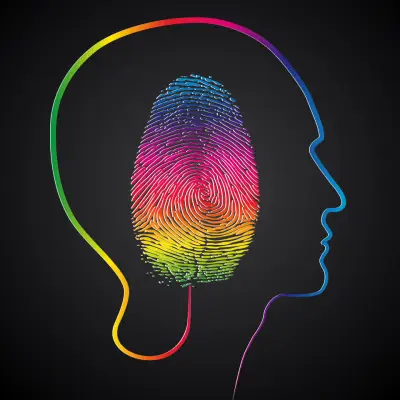In our Psychology Overview 101 blog, we explored the broad subject of psychology. As part of our ongoing series on the major subfields of psychology, we now direct our attention to the complex and impactful arena of Clinical Psychology!
Jump to:

What is Clinical Psychology?
Clinical Psychology focuses on the assessment, diagnosis, and treatment of mental health issues and psychiatric disorders. Psychologists work directly with clients to help improve their emotional, cognitive, and behavioural health through evidence-based therapies and interventions. Their main goal is to help individuals and families who are facing some form of psychological distress to function in healthier ways.
During an assessment, the psychologist will start by gathering information about the individual’s symptoms and history through clinical interviews, psychological testing and observation to form an accurate diagnosis. Depending on the diagnosis, they will then use a selection of therapeutic techniques to specifically address the needs of the individual. This could be things like psychotherapy or counselling for behaviour modification.
As well as treating existing mental health issues, clinical psychologists also work to prevent psychological disorders from developing or becoming worse by using early intervention strategies that identify risk factors. Ongoing assessment occurs throughout treatment to monitor progress and adjust plans as needed.
Core Concepts and Principles
Clinical psychologists use different theories to understand their clients and decide on treatment plans. Some of the main theories are:
Psychoanalytic/Psychodynamic theory: This theory is based on Sigmund Freud and looks at how the unconscious mind and childhood experiences affect thoughts and behaviours. Psychoanalytic therapists believe that unconscious processes, inner conflicts, and early childhood experiences strongly influence personality development and psychological problems. Therapy techniques based on this theory aim to surface repressed memories via methods like dream analysis and free association.
Behavioural theory: This theory focuses on how behaviours are learned through experience, such as in the case of conditioning and observational learning. The focus is on directly changing outward behaviours first to influence inner thoughts and feelings. Cognitive-behavioural therapy is one clinical approach that’s grounded in behavioural theory, which aims to change unhelpful thinking and behaviour patterns.
Cognitive theory: This theory emphasises the role of a person's thoughts, assumptions, and beliefs in shaping emotions and actions, with cognitive restructuring being one of the key techniques used in this approach. Cognitive therapists help clients identify distorted or unhelpful thinking patterns that lead to psychological distress. The goal is to develop more realistic and adaptive thought patterns.
Humanistic theory: This approach is associated with American psychologist Carl Rogers and emphasises personal growth, self-actualisation, and the search for meaning and authenticity in life. Client-centred therapy comes from this approach.
Biopsychosocial model: This model looks at biological (genetics, brain chemistry), psychological (traumatic experiences) and social (family relationships) causes of mental health issues. Therapists who use the biopsychosocial model take all of these aspects into account when assessing a client and developing a comprehensive treatment plan.
Recommended for you!
Best SellersApplications of Clinical Psychology
Clinical psychology has a wide range of real-world applications. A major role of clinical psychologists is providing assessment and psychotherapy services for mental health disorders, or treating conditions like depression, addiction or trauma either in hospitals, private clinics or community health centres. The techniques psychologists use include cognitive-behavioural therapy, psychodynamic therapy, group therapy, and family therapy. Some clinical psychologists specialise in working with certain groups like children, the elderly, ethnic minority groups, or those with chronic illnesses.
As well as providing therapy, clinical psychologists are also involved in assessment. They may administer and interpret psychological tests that measure areas like intelligence, personality, neurocognitive functioning, and vocational interests, helping to inform the diagnosis and planning for treatment. Clinical psychologists also conduct suicide and violence risk assessments to determine the safety of high-risk individuals. Some work in forensic psychology, conducting criminological assessments and advising legal professionals on psychological factors that are relevant to court cases.
Clinical psychologists additionally practise in health settings like pain clinics or cancer treatment centres, where they help patients manage physical health conditions that interfere with their mental health, but also in day-to-day organisational settings. For example, they may consult with companies on leadership development, employee selection, or performance evaluation to improve motivation and productivity.
How to Become a Clinical Psychologist
Pursuing a career as a clinical psychologist is somewhat straightforward, but it requires extensive education and clinical training.
The journey to becoming a clinical psychologist typically begins with earning a bachelor's degree in psychology or a related field like social work or mental health counselling. During your undergraduate degree, you’ll be given coursework tasks that provide a foundation level in areas like psychology theories, statistics, research methods, and biological sciences.
After your degree, you’ll need to complete a doctorate in clinical psychology, which is usually three years. The most common postgraduate degrees are the Ph.D. (Doctor of Philosophy) and the DClinPsy (Doctor of Psychology) in clinical psychology. This course will include a combination of academic study, research and supervised clinical placements, either at hospitals or specialist clinics. But even before applying, you’ll need to get some practical experience under your belt (e.g. working as an assistant psychologist or support worker in the field of mental health).
After qualifying as a clinical psychologist, ongoing CPD (continued professional development) is required to maintain the skills and knowledge that you have learnt so far from your degree and work experience. Attending workshops and training courses are common ways to do this. At this point, you may also decide to go down a specialist route. For example, you may want to branch off to study areas like neuropsychology, child and adolescent mental health or forensic psychology.
The major theories and techniques that are discussed here represent some of the core foundations of the field, but there is still much more to explore. If you’re interested in learning more about the key concepts, principles, and perspectives in clinical psychology (or even in broad psychology), our accredited online Psychology diploma course provides an in-depth introduction for only £29 (save £98)!
The course covers the major domains of psychology, research methods, treatment approaches, and career opportunities to build up a comprehensive base of knowledge. So, whether you hope to pursue a career in psychology or simply want to expand your understanding of the human mind and behaviour, our course offers an excellent starting point!













